- News
- Reviews
- Bikes
- Components
- Bar tape & grips
- Bottom brackets
- Brake & gear cables
- Brake & STI levers
- Brake pads & spares
- Brakes
- Cassettes & freewheels
- Chains
- Chainsets & chainrings
- Derailleurs - front
- Derailleurs - rear
- Forks
- Gear levers & shifters
- Groupsets
- Handlebars & extensions
- Headsets
- Hubs
- Inner tubes
- Pedals
- Quick releases & skewers
- Saddles
- Seatposts
- Stems
- Wheels
- Tyres
- Tubeless valves
- Accessories
- Accessories - misc
- Computer mounts
- Bags
- Bar ends
- Bike bags & cases
- Bottle cages
- Bottles
- Cameras
- Car racks
- Child seats
- Computers
- Glasses
- GPS units
- Helmets
- Lights - front
- Lights - rear
- Lights - sets
- Locks
- Mirrors
- Mudguards
- Racks
- Pumps & CO2 inflators
- Puncture kits
- Reflectives
- Smart watches
- Stands and racks
- Trailers
- Clothing
- Health, fitness and nutrition
- Tools and workshop
- Miscellaneous
- Buyers Guides
- Features
- Forum
- Recommends
- Podcast
review
£2,199.99
VERDICT:
Quick and reactive carbon-fibre road bike that comes ready to race
Weight:
7,800g
Contact:
At road.cc every product is thoroughly tested for as long as it takes to get a proper insight into how well it works. Our reviewers are experienced cyclists that we trust to be objective. While we strive to ensure that opinions expressed are backed up by facts, reviews are by their nature an informed opinion, not a definitive verdict. We don't intentionally try to break anything (except locks) but we do try to look for weak points in any design. The overall score is not just an average of the other scores: it reflects both a product's function and value – with value determined by how a product compares with items of similar spec, quality, and price.
What the road.cc scores meanGood scores are more common than bad, because fortunately good products are more common than bad.
- Exceptional
- Excellent
- Very Good
- Good
- Quite good
- Average
- Not so good
- Poor
- Bad
- Appalling
Lapierre's Xelius EFi 200 is a fast and reactive carbon-fibre road bike that comes ready to race.

The Xelius EFI has been raced at the highest level by the FDJ team for the past couple of seasons. The version that the professionals use, containing a high proportion of very high modulus carbon fibre, is available on Lapierre's Ultimate programme. The model we have is built to exactly the same geometry although the layup is slightly different.
The Ultimate version aside, there are three standard Xelius EFI models available in the UK, all of them using exactly the same frame. These are the different builds:
- Xelius EFI 100, £1,699.99, Shimano 105 groupset, Mavic Aksium WTS wheels
- Xelius EFI 200 – this one – £2,199.99, Shimano Ultegra groupset, Mavic Ksyrium Equipe wheels
- Xelius EFI 400, £2,549.99, Shimano Ultegra groupset, Mavic Ksyrium Elite wheels

Here's everything you need to know about the Xelius EFI 200.
1. Race-focussed ride
The Xelius is very much a race-focussed design; you can tell that just by looking at it. Our large sized test model comes with a 550mm seat tube, a 570mm top tube, and a 170mm head tube. The stack is 569mm and the reach is 396mm.

What those figures mean is that you'll find yourself riding in an aggressive position. Spacers underneath the stem (2.5cm of them) raise the handlebar up a bit but this is a bike that's built to a racing geometry.
This approach might be exactly what you're after. It suits me perfectly. If you want something with a relaxed riding position, though, you're better off steering clear. Lapierre's Sensium and Pulsium models would be better choices for you.

The Xelius lives up to its race bike status in that it comes with plenty of frame stiffness dialled in. Lapierre build it to what they call their 'Powerbox' concept. Essentially, that means that the bottom bracket area, chainstays, down tube and head tube are designed to maximise stiffness and power transfer while the top tube, seat tube and seatstays are designed to be more compliant to provide a comfortable ride. The designers say that they do this by varying the number and the type of Toray carbon fibres in the different zones.
That might sound like what a lot of other manufacturers do without endowing it with a special name, but I'd have to agree that the Xelius is strong and solid when you put the power down. Stand up on the pedals and chuck the bike about for a steep climb or a sprint and the bottom bracket stays resolutely in place rather than wafting about from side to side.

The same goes for the front end. The Lapierre full-carbon fork that slots into the tapered head tube (1 1/8in upper bearing, 1 1/4in lower bearing) holds things firm and straight, and the steering is very precise when you're carving through tight corners.
The Xelius picks up speed very efficiently too. Our complete bike hit the road.cc Scales of Truth at a respectable 7.8kg (17.2lb) and it doesn't take too much effort to accelerate up to full speed. If anything, the Xelius rides a little lighter than the weight would suggest and it isn't fazed by even the steepest climbs. It doesn't quite strain at the leash like some superlight bikes when you hit the hills but it's a more than capable climber. Wheels lighter than the Mavic Ksyrium Equipes fitted would add a touch more haste, but these are a solid, dependable option and they're far from sluggish.
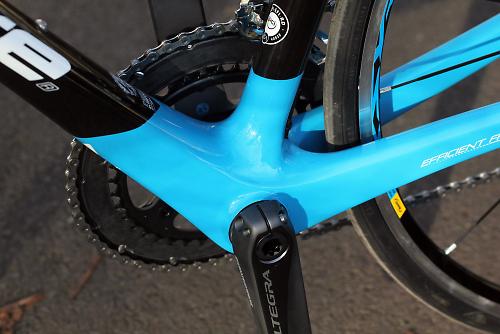
2. A firm feel
Bike comfort comes from two distinct sources. First, you have the comfort that comes from your ride position. As mentioned above, the Xelius's ride position is fairly aggressive. Whether that's right for you is going to come down to your flexibility, dimensions, and the type of riding you do.

Comfort is also down to the degree to which the bike transfers bumps and vibrations from the road to you. On this score, the Xelius puts in a decent performance although there are smoother bikes out there, particularly if you shift over into the 'endurance' sector (although this isn't designed to be an 'endurance' bike, so maybe that's not a fair comparison).
With a large diameter (31.6mm) seatpost and 23mm Mavic Yksion Comp tyres, the feel is fairly typical of a race-orientated road bike. If you want a plusher ride, you could fit 25mm tyres – there's easily enough space. In fact, there's no reason not to do that when the original tyres wear out.
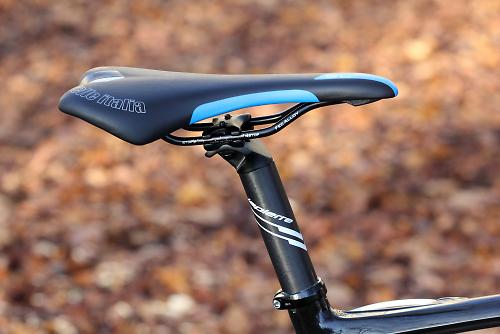
I always get on really well with Selle Italia SL saddles, finding the slim-ish nose and reasonable amount of shell flex pretty much spot on although, as we always point out, saddles are very much a matter of personal preference.
3. Solid specification
As mentioned up top, the Xelius 200 comes with an 11-speed Shimano Ultegra groupset, Ultegra being Shimano's second tier road group, sitting below only Dura-Ace. The shifters, derailleurs, brakes and chainset are all Ultegra, the only deviation being that the sprockets are Shimano 105, the next level down.
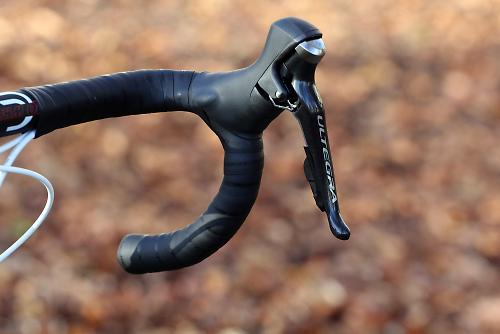
Ultegra offers great shifting and fantastic braking, and really doesn't have a weakness. If I was to pick out a highlight, I'd say it's the braking which is powerful and predictable in both wet and dry conditions. If you want to know more on Ultegra, check out our review of the complete groupset.
Our bike came fitted with a standard chainset (53/39-tooth chainrings) although you can opt for a compact (50/34-tooth) option for a spread of smaller gears. If you change your mind, swapping from one to the other is a simple matter now that Shimano use a single bolt circle diameter. This means you can now just change the chainrings rather than needing a completely different chainset.
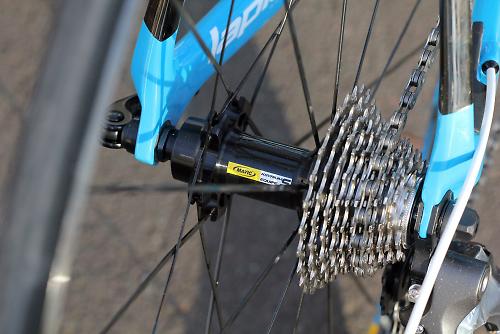
The Mavic Ksyrium Equipe wheels are similarly strong performers. I've been using Ksyriums on and off for years and have only good things to say about them, particularly concerning their strength and durability. The only time I've ever broken a Ksyrium spoke was about 10 years ago when I rode into a car. The lesson there is not to ride into cars.

The Equipes are the entry-level Ksyriums – bought alone they'll set you back £390 – but they're still reasonably light and they spin on good quality cartridge bearings. They're not the most spectacular wheels ever but they're likely to put in good service over a long period of time. The 23mm Mavic Yksion Comp tyres I mentioned earlier are quick and they're certainly grippy enough although their resistance to punctures is only average.

The only other components to mention are the 6061 alloy handlebar and stem from Deda. The bar is a compact design with a drop (vertical distance from the tops to the ends) of just 128mm and a reach (horizontal distance from the clamp point to the furthest extension forward) of 75mm. It's not the lightest or most distinctive bar but I found the drops very comfortable in an unfussy kind of a way.
Summing up
What the Lapierre Xelius EFi 200 promises, and what you get, is a performance-focussed ride. It's a quick, responsive race bike that doesn't offer up any unwanted surprises.

Verdict
Quick and reactive carbon-fibre road bike that comes ready to race
road.cc test report
Make and model: Lapierre Xelius EFi 200
Size tested: 57
About the bike
State the frame and fork material and method of construction. List the components used to build up the bike.
Frame: Xelius Carbon
Fork: Lapierre Xelius Carbon - carbon steerer
Headset: FSA 1 1/8 1 - 1/4 FSA Orbit C-33 44E + 15mm top cover
Bottom bracket: Shimano KSMBB7141B Pressfit
Chainset: Shimano Ultegra KFC6800cx39 53x39
Stem: Deda Zero2
Seatpost: Lapierre Carbon SP-297N-ACF l:350mm dia:31,6mm
Handlebar: Deda RHM02
Front derailleur: Shimano Ultegra
Rear derailleur: Shimano Ultegra
Shifters: Shimano Ultegra 2x11-speed
Brakes: Shimano Ultegra
Saddle: Selle Italia SL
Wheel: Mavic Ksyrium Equipe
Sprocket: Shimano 105
Tires: Mavic Yksion Comp 700x23
Tell us what the bike is for, and who it's aimed at. What do the manufacturers say about it? How does that compare to your own feelings about the bike?
The Xelius is designed as an all-round race bike and that's how it performs.
Frame and fork
Overall rating for frame and fork
8/10
Riding the bike
Rate the bike for efficiency of power transfer:
8/10
Rate the bike for acceleration:
7/10
Rate the bike for sprinting:
7/10
Rate the bike for high speed stability:
7/10
Rate the bike for cruising speed stability:
7/10
Rate the bike for low speed stability:
7/10
Rate the bike for flat cornering:
8/10
Rate the bike for cornering on descents:
8/10
Rate the bike for climbing:
7/10
The drivetrain
Rate the drivetrain for performance:
8/10
Rate the drivetrain for durability:
8/10
Rate the drivetrain for weight:
8/10
Rate the drivetrain for value:
8/10
Wheels and tyres
Rate the wheels and tyres for performance:
7/10
Rate the wheels and tyres for durability:
7/10
Rate the wheels and tyres for weight:
7/10
Rate the wheels and tyres for comfort:
7/10
Rate the wheels and tyres for value:
8/10
Controls
Rate the controls for performance:
8/10
Rate the controls for durability:
8/10
Rate the controls for weight:
8/10
Rate the controls for comfort:
8/10
Rate the controls for value:
8/10
Your summary
Did you enjoy riding the bike? Yes.
Would you consider buying the bike? I'd consider it.
Would you recommend the bike to a friend? Yes.
Rate the bike overall for performance:
7/10
Rate the bike overall for value:
7/10
Anything further to say about the bike in conclusion?
Many road bikes at around this price come with a carbon frame and fork and a Shimano Ultegra groupset. Some manufacturers sneak a few non-Ultegra parts into the mix whereas the only downgrade Lapierre include are the 105 sprockets. You could argue that this bike deserves an 8 rather than a 7 for value. It's certainly a close run thing.
About the tester
Age: 43 Height: 190cm Weight: 75kg
I usually ride: My best bike is:
I've been riding for: Over 20 years I ride: Most days I would class myself as: Expert
I regularly do the following types of riding: commuting, club rides, sportives, general fitness riding,
Mat has been in cycling media since 1996, on titles including BikeRadar, Total Bike, Total Mountain Bike, What Mountain Bike and Mountain Biking UK, and he has been editor of 220 Triathlon and Cycling Plus. Mat has been road.cc technical editor for over a decade, testing bikes, fettling the latest kit, and trying out the most up-to-the-minute clothing. He has won his category in Ironman UK 70.3 and finished on the podium in both marathons he has run. Mat is a Cambridge graduate who did a post-grad in magazine journalism, and he is a winner of the Cycling Media Award for Specialist Online Writer. Now over 50, he's riding road and gravel bikes most days for fun and fitness rather than training for competitions.


































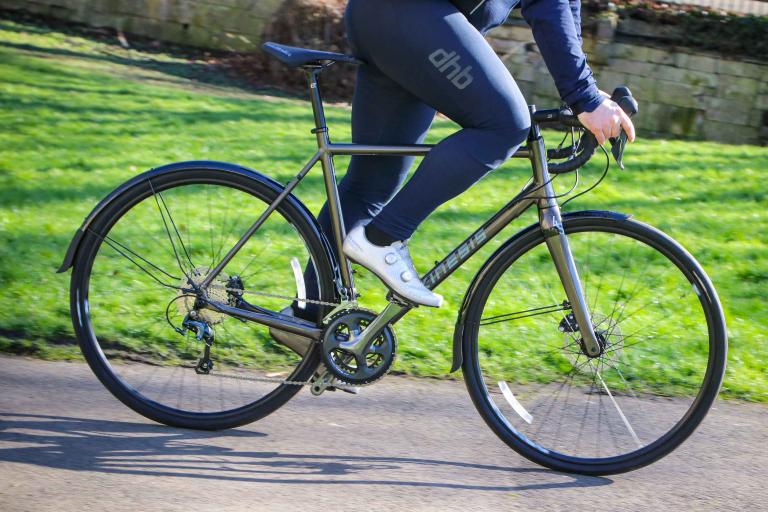
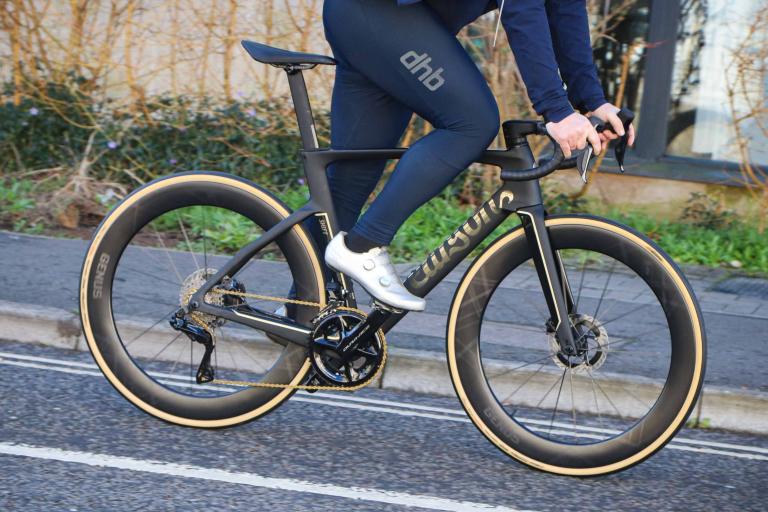
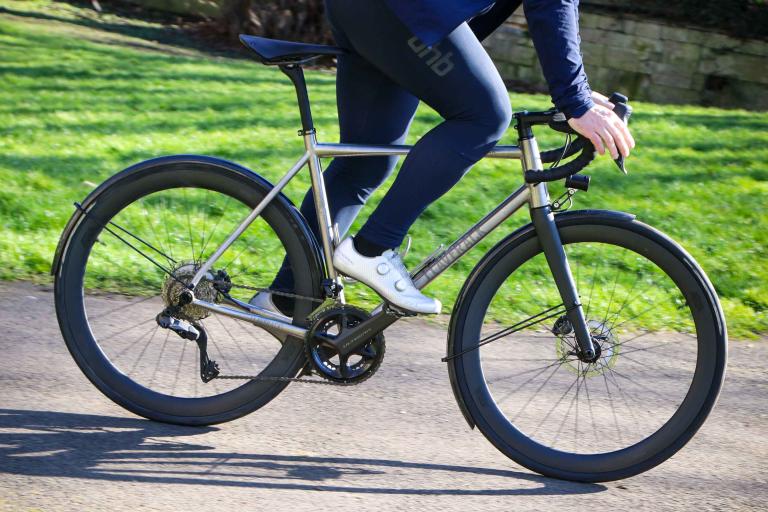
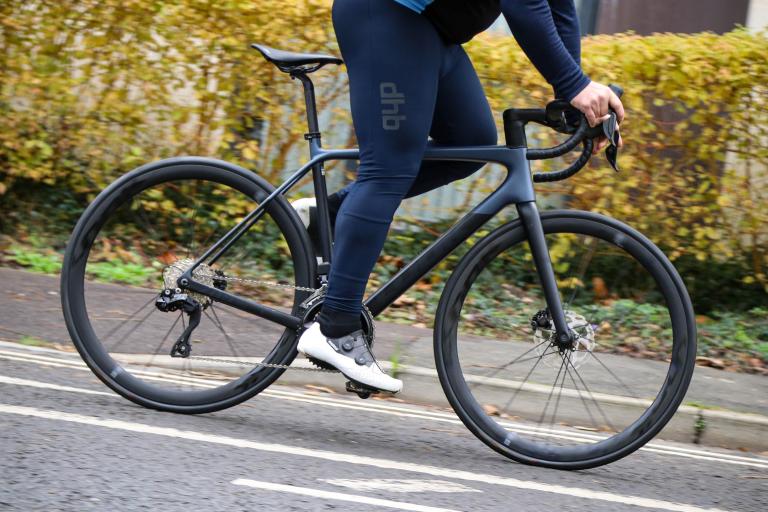
That one was completely different though, it was a driver not a car as in the other 3. So 1 in 4 of the stories manage to follow reporting guidelines.
Absolutely they could have. Tarmac is a petroleum-based product and its surface can be very oily when it's newly laid. This is particularly the...
I'm glad the article went into more detail and cleared things up, the headline had me worried that some autonomous building had run rampant and...
Still here, just showing a few signs of wear and tear. Hopefully still serviceable for some years to come.
Has he fully recovered though, and will he ever?...
How can you know that you are "equally fearful" as "any female cyclist"? There is no possible way of quantifying such emotions and female cyclists...
I think it would be fairer to blame the moon - as in "my client is a loony".
Nice idea but Gloucestershire Constabulary are not interested as exemplified by this prvious NMOTD. Not only was there NFA for the close pass in...
Peace Was Never An Option
I think black boxes are great for early detection of cognitive decline and/or sight problems. Someone's driving is going to become much less smooth...